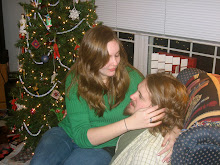"Persephone is like a mortal woman entering into marriage, which the Greeks often compared to death" (Murnaghan xvi). A creepy idea, to say the least. What could have compelled this view? Did the myth lead to the comparison, or the comparison to the myth?
As you enter into a new, married life, one must give up certain things. The trade off, what's given versus what is gained, is more than fair, and for most a worth while situation. Yet, irrevocablly, irreconcialibly, things change. Once married, the person no longer has the same priorities, and certain things become far more important than they once were. The freedom, the independence, while still there, is of another form altogether. As Persephone is led into the abyss of the underworld, she is dying. Her life as a single woman is over. It has died, making it pertinant that she went where the dead go. Eating Hades' seed, she became mortal and lost her innocence. Marriage is death.
Yet did the Greeks feel that marriage was just that? Was marriage nothing but death? What about the new life, the birth of a new you--a different you, obviously, but still you--that arises from marriage? I don't know, and research hasn't been as effective as I would like (see "Ancient Greek Wedding" and "Greek Marriage"), but I can't help but feel that death couldn't have been all. How could a culture flourish that equated morbidity with marriage?
Murnaghan, Sheila. "Introduction." Homeric Hymns. Sarah Ruden. Indianoapolis: Hackett Publishing Company, Inc, 2005. vii-xxiii.
4 years ago

No comments:
Post a Comment